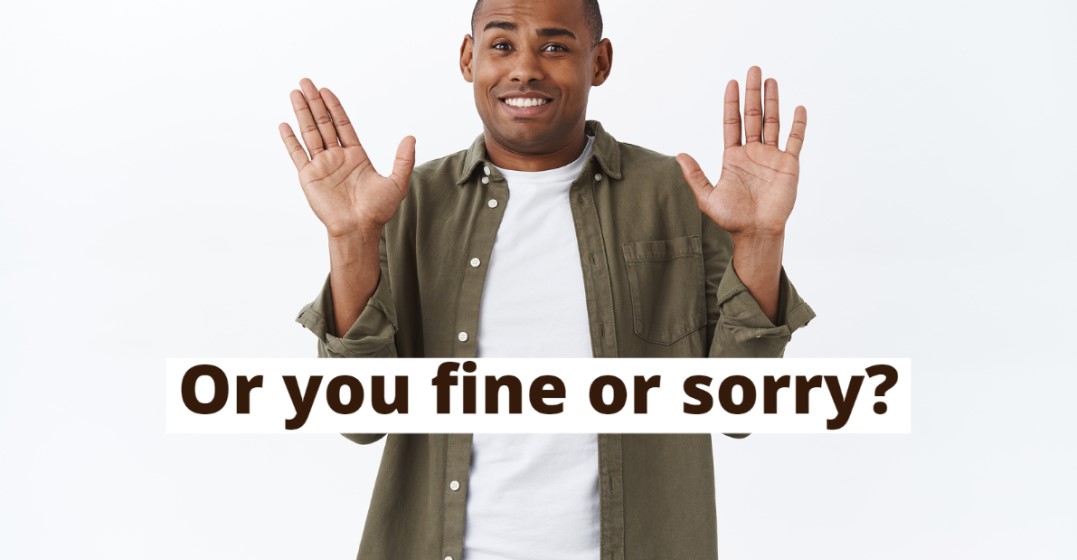The difference between fine and sorry in English
Published on June 3, 2020 / Updated on January 9, 2024
In everyday British English, both fine and sorry are overused. According to some recent polls, Brits say sorry up to eight times a day (if not more!) and surely the same applies to “fine”, being the most common response to, “How are you?”.
However, both words can often have the same meaning and be used together! Let’s explore the many meanings of these typical British words outlining some conversations with both usages.
Firstly, we’ve compiled some tips on the usage of fine and sorry because both can be used in many contexts – be careful and take note!
If you look up the meaning of fine in the dictionary, you’ll know what we mean by the myriad of meanings it has! Most commonly, the usage of fine is in response to someone asking how you are. According to Collin’s Dictionary, it is the second usage of an adjective, meaning you are “in good health or reasonably happy.”
Another popular usage of fine is for the weather (satisfactory in England because the weather is hardly ever better than fine!). We’ve gone over the idioms you need to be using with the weather if you are learning English as a foreign language before. However, when speaking with English colleagues, you’ll hear them say, quite often, that the weather was fine, even if it was perfect. Brits don’t like to overdo it.
The most popular way to use fine – when something is good or great – can also be used to describe someone as well. So a question like”How’s Sarah?” could get a response of “Yeah, she’s fine“. This means she is doing well, she’s a nice person, or she’s simply feeling better!
Now the most popular usages of fine are out the way, when do Brits use Sorry?
The usage of sorry in English is to show politeness and it is said more than frequently!
Sorry often refers to an expression of apology, but can also be used to accept someone’s mistake. We’ve gone over how to use sorry the British way before. So, now let’s see how the usage of fine and sorry can be used together in a typical conversation.
Jack: “How are you doing?”
Jim: “Not so good, and you?”
Jack: “Sorry to hear, I’m fine thanks”
This is a standard set out of an introductory chat in British English, it shows basic politeness.
Now let’s look at a conversation to use fine and sorry in the same context when responding to a question:
“Do you want to leave now?”: “Sorry, yes, let’s go” or “Fine, let’s go”.
“Have you cleaned your room?”: “Sorry, I’ll do it now” or “Fine, I’ll do it now”.
In these two sentence structures, can you see how the usage of both words can be used for the same response? Fine and sorry can both signify “OK”, “Yes” or “No”. Sometimes fine can also come across a little moody and if often used by teenagers.
With this compact outline, hopefully, you can use both words with ease when travelling to the UK or speaking to a Brit!
If you’d like to improve your English, visit the Lingoda website and sugn up for your free 7-day trial with our native speaking teachers. You can choose classes on topics that interest you, at anytime!
